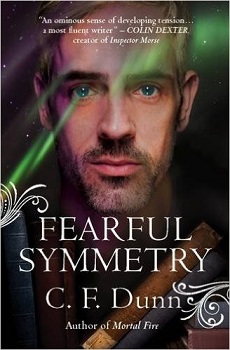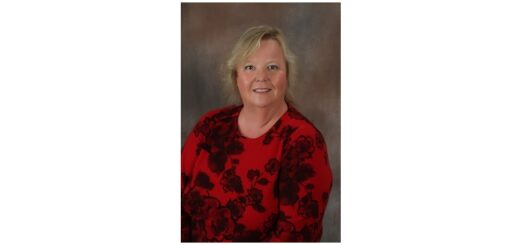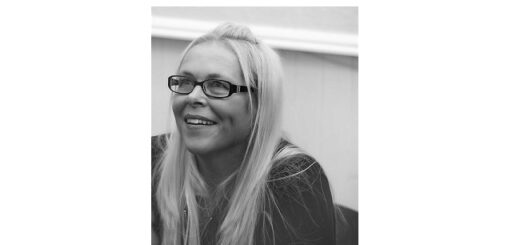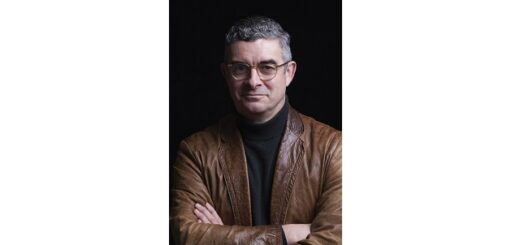The Writing Life of: C. F. Dunn
C. F. Dunn
Today I have the honour of interviewing author C.F. Dunn about her writing life, and about her latest book, Fearful Symmetry, which was released on the 16th September 2016.
So without further ado, say hello to C. F. Dunn. This post contains affiliate links.
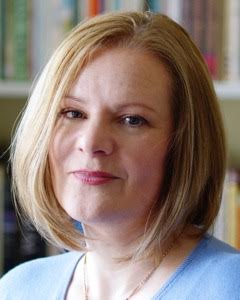
C. F. Dunn thrives on creating romantic thrillers with a historical twist, drawing on a degree in history and a career in literacy development to write stories that touch on people’s frailty and their unexpected strengths. Everyone has a story to tell, and she explores how the legacy of the past impacts on the present and shapes the future. The question is, can anyone escape their history, and how will it determine the path they choose to take?
Her love of Maine and her family’s long legacy in the county of Lincolnshire provide a rich heritage and vital elements in the evolving story of The Secret of the Journal series.
C. F. Dunn is blessed with a historian husband, two creative daughters and a quirky Corgi, C. F. Dunn divides her time between running a specialist dyslexia and autism school she and her husband founded in Kent, and writing in Cornwall.
1) Do you remember the moment you decided that you would like to become a writer?
I’ve told stories in my head since I was in my pram, but it must have been at the age of seven – before I could read or write – when I dictated a poem to my mother and thought: this is it – I want to write!
2) How did you go about following your dream?
I didn’t at first. Being dyslexic didn’t curb my imagination, but my spelling and organisation were all over the place. It wasn’t until I discovered computers many years later that I could set my imagination free and, when I sat down to write in 2009, found I couldn’t stop.
I sent the manuscript for Mortal Fire – my debut novel – to commissioning editor Tony Collins at Lion Hudson, and the rest – as they say – is history.
3) Which authors inspire you?
Where to begin? I love the music of Dylan Thomas’s language, the imagery in John Donne and George Herbert’s poetry. The epic tales told by Tolkien and the Viking sagas inspire, as did Beowulf.
Growing up, I enjoyed the adventures told by Rosemary Sutcliff and CS Lewis, and as a teen the romance of Jane Eyre. Now, I am as likely to turn to Penelope Wilcock’s Hawk and Dove series, as I am to Rose Tremain.
4) What is your working day like? Do you aim for a certain amount of pages/words per day?
I aim to write a scene or chapter per day, rather than a set number or words. It gives me more freedom and I feel less like a school child writing out lines!
Some days are spent purely in research and preparation, but mostly I write or edit for anywhere between four and thirteen hours a day.

Where C.F Dunn Writes
5) Do you have any strange habits or rituals whilst writing?
Does consuming strong coffee and dark chocolate count? I’m not sure about ‘strange’ but I have a dodgy visual memory, so often use props to help me focus on building depth in a scene.
For example, I have a wonderful scale model of an Aston Martin in the same shade of red as Matthew’s car, which I drive along my desk so I can imagine it on the open roads of Maine. For my new Medieval series, I made a coral and jet paternoster (a set of prayer beads used in personal devotions) which one of the characters uses, to help me imagine her fiddling with them – and being told not to!
6) Do you write Longhand, Typewriter, Computer?
I always use a laptop to write, but often work out plot hitches and character profiles in longhand. Writing things out by hand gives me time to think and it’s more tactile, but is too slow when racing to get the bulk of the story down.
7) Do you have a favourite character(s) in any of your books?
I idolized Aslan as a child, but I also liked independent people such as Jane Eyre and Laura Ingalls Wilder.
Now, I couldn’t say I have a favourite character as such, but some will always be appealing because of their inherent qualities, be they courageous in the face of adversity, misjudged, or simply full of compassion for others.
8) Do you plot your books completely beforehand, or do you let your imagination flow whilst in the writing process?
A bit of both. I envisage the whole story first: beginning, middle, and end, so I have a backbone to work to. However, I also let the story develop through the characters, so there will be many more twists and turns along the way than I imagined at the start. In that way, the story remains alive to possibilities, and organic in its development. I like plots with layers – like life.
Concerning your latest book:
The Secret of the Journal
Publisher – Lion Fiction
Pages – 320
Release Date – 16th September 2016
ISBN 13 – 978-1782641988
Format – ebook, paperback
Post Contains Affiliate Links
Guy Hilliard is dead, but the legacy of his deceit remains. Emma – newly married to Matthew Lynes – is finding it difficult to shed the guilt she feels for her part in the accident that killed him. She has not only lost her position at Howard’s Lake college, but her academic credentials have been called into question, threatening her career. And if that wasn’t enough, Ellie, Matthew’s great-granddaughter, holds Emma responsible for Guy’s death and has news that will leave the family reeling.
The dramatic conclusion to The Secret of the Journal series.
9) How long did it take to get from the ideas stage, to the date of publication?
I conceived The Secret Of The Journal series in 2009 and the fifth and final book – Fearful Symmetry – came out in September 2016. It was the quickest book to write because the previous four books paved the way for the final, explosive ending. Also, I knew the characters inside-out and knew exactly how they would behave at any given time.
10) Did you suffer from writer’s block at any stage? How did you overcome it?
I’ve not yet encountered the dreaded writer’s block. If anything, I have writer’s overload, with decades of stories queuing up to get on the page. On a slow day, I focus on editing or research, which usually kick-starts the process again.
11) How did you come up with the name(s)for your lead character(s)?
Names are so important. I must confess that I poached family names for Matthew and Emma: Lynes from my husband’s family, and D’Eresby (which is a derivation of an old Lincolnshire family) from my own. It took me ages to choose them as they had to work with the characters I was developing. Now Matthew and Emma seem real.
12) Can you give us an insight into your main character (s), What makes them tick?
For Emma, loyalty, history, and her search for truth in hidden things are important. In Mortal Fire, she is closed up and cut off from herself and the world, but events force her to become part of it again.
For Matthew, it is his medical work, family, faith, and his need to understand his state of being and to be accepted and belong that matter.
In Emma, for the first time in his long life, he has someone who accepts him and whom he can trust. That need for trust and acceptance is so important to people, isn’t it?
13)If your book was made into a film, who would you love to play the lead character(s)?
An author’s favourite question! Well, if I had a choice, someone like Jessica Chastain or Emily Blunt would make a marvellous Emma. And while the late, lovely Paul Walker is the spitting image of Matthew, young British actor, Sam Claflin (The Hunger Games) has the depth and breadth of expression to capture Matthew’s other-worldliness. He also has a good-natured face, which is a must for Matthew’s character.
It took me some time to think of someone to play Guy, but Matthew Goode (Stoker) fits the bill perfectly. Gary Oldman – a first-rate actor – would make a truly mesmerising Kort Staahl, and Aidan Turner, (Poldark) a brooding, seductive Sam.
14) Did you get anyone in particular to read your work before sending it to the publisher i.e family member, friend etc?
My wonderful father has supported my work from the beginning and I always trust his feedback during those first rough drafts of each book.
My good friend, author Sue Russell, is my writing buddy. We read each other’s work and give honest feedback. She is marvellous at picking up on my dyslexic punctuation, and our sessions are always accompanied by coffee, laughter, and friendship.

